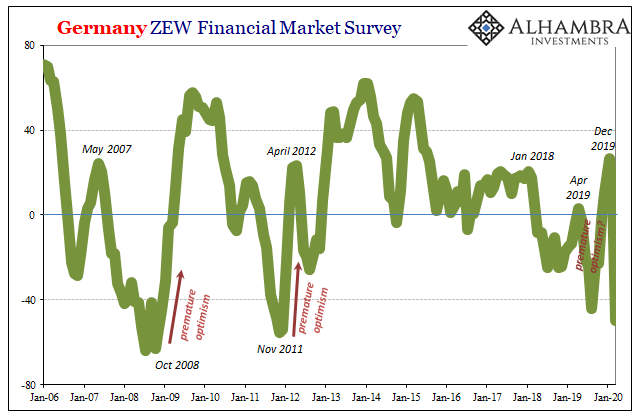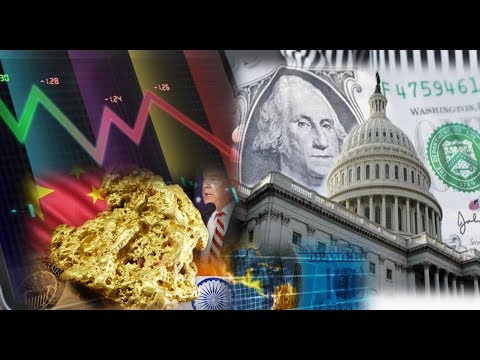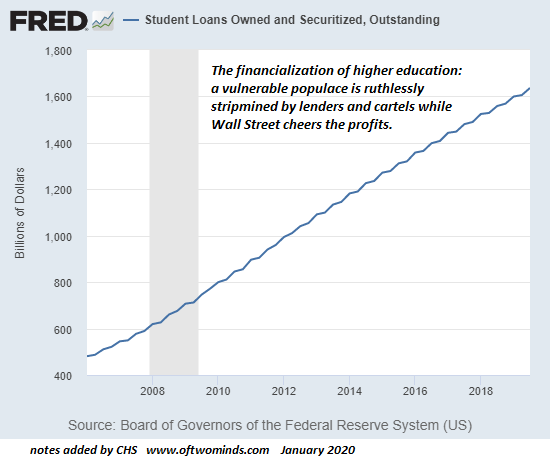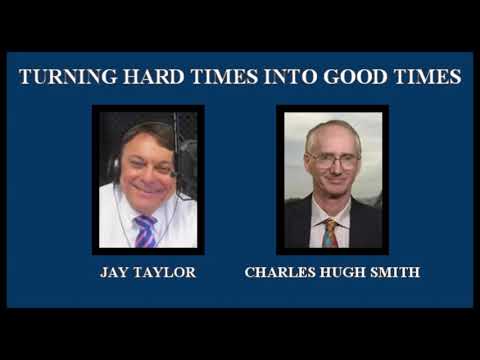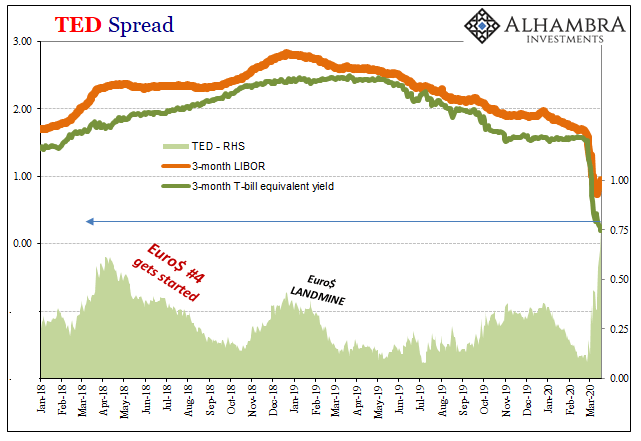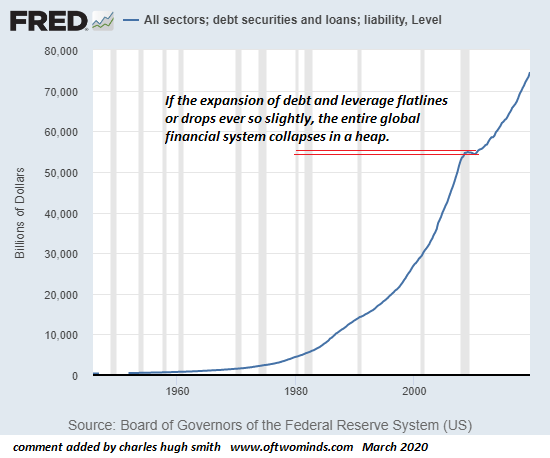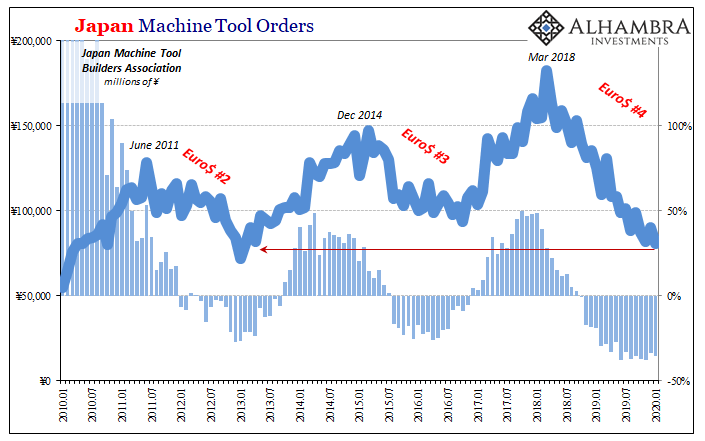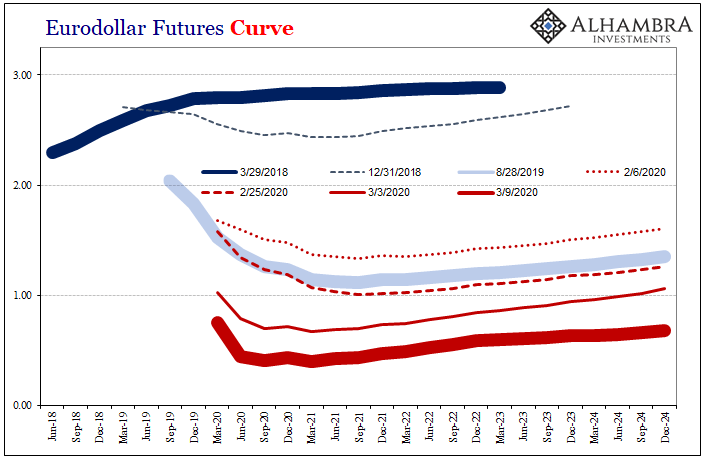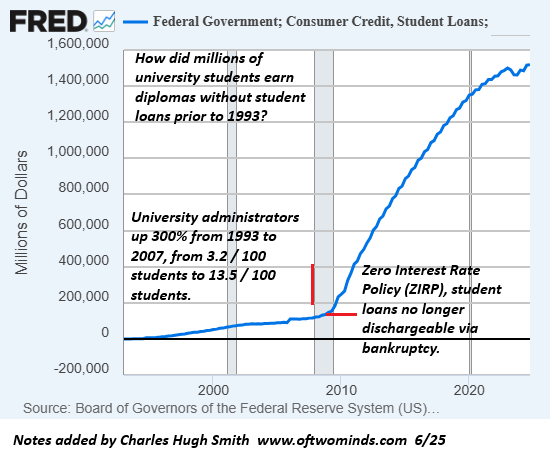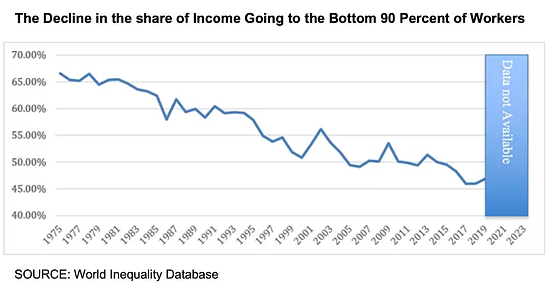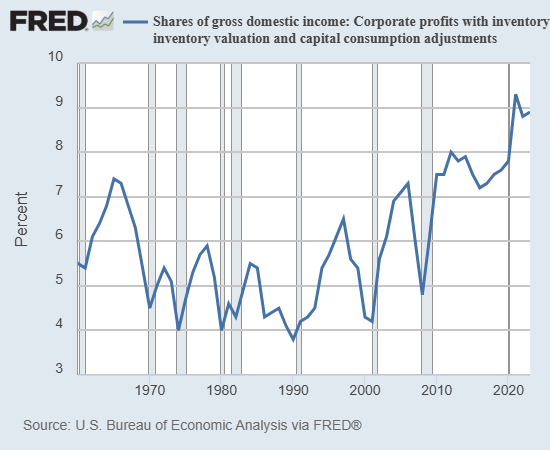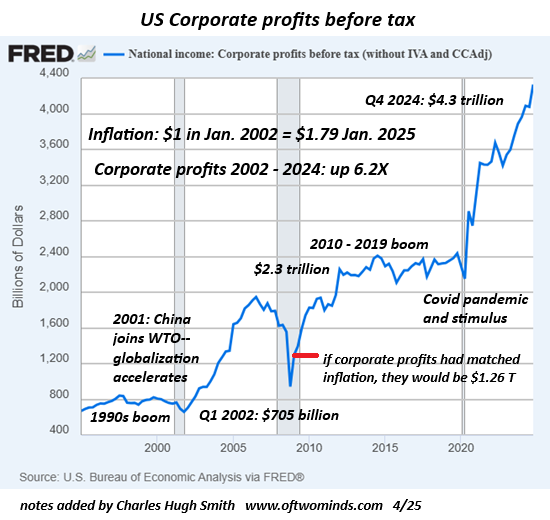Category Archive: 5) Global Macro

Stagnation Never Looked So Good: A Peak Ahead
Forward-looking data is starting to trickle in. Germany has been a main area of interest for us right from the beginning, and by beginning I mean Euro$ #4 rather than just COVID-19. What has happened to the German economy has ended up happening everywhere else, a true bellwether especially manufacturing and industry.
Read More »
Read More »
The new coronavirus: how should the world respond? | The Economist
The new coronavirus is shutting down planet Earth. What lessons can the rest of the world learn from China, Singapore and South Korea? Find all of The Economist’s coverage of covid-19 here: https://econ.trib.al/LnKtbv8 Click here to subscribe to The Economist on YouTube: https://econ.st/2xvTKdy Further reading: Covid-19 interactive web-based map from the John Hopkins Coronavirus Resource …
Read More »
Read More »
Charles Hugh Smith warns of Global Collapse⚠️ Market is Broken with Banking System
For the full transcript go to: https://www.financialanalysis.tv #Financial News #Silver News #Gold #Bix Weir #RoadToRoota #Kyle Bass #Realist News #Greg Mannarino #Rob Kirby #Reluctant Preppers #The Next Newss #Maneco64 #Mike Maloney #Gold Silver #Eric Sprott #Jim Rickards #David Morgan #Peter Schiff #Max Keiser #Robert Kiyosaki #SilverDoctors #Jim Willie #Clif High #Ron Paul# Pastor Williams #Bill …
Read More »
Read More »
Dollar Firm, Markets Unsettled Despite Aggressive Policy Responses Worldwide
Markets remain unsettled even as policymakers worldwide continue to take aggressive emergency measures; the dollar continues to power higher. Fed rolled out another crisis-era program last night; US Senate passed the House virus relief bill by a 90-8 vote. ECB held an emergency call last night and announced an additional bond purchase program to the tune of €750 bln that now includes commercial paper.
Read More »
Read More »
The Global Repricing of Assets Can’t Be Stopped
All bubbles pop, period. The financial elites are pushing a narrative that asset prices, sales and profits will all return to January 2020 levels as soon as the Covid-19 pandemic fades. Get real, baby. Nothing is going back to January 2020 levels. Rather than the "V-shaped recovery" expected by Goldman Sachs et al., the crash in asset prices will eventually gather momentum.
Read More »
Read More »
Charles Hugh Smith – Why Are Things Falling Apart?
Charles Hugh Smith, author/proprietor of OfTwoMinds.com explains the self-inflicted pathology that threatens the West’s financial comfort and the liberties we have enjoyed for generations.
Read More »
Read More »
Is GFC2 Over?
Is it over? That’s the question everyone is asking about both major crises, the answer is more obvious for only the one. As it pertains to the pandemic, no, it is not. Still the early stages. The other crisis, the global dollar run? Not looking like it, either.
Read More »
Read More »
Covid-19 Helicopter Money: Go Big Now or Go Home
This is why it's imperative to go big now, and make plans to sustain the most vulnerable households and small employers not for two weeks but for six months--or however long proves necessary. That governments around the world will be forced to distribute "helicopter money" to keep their people fed and housed and their economies from imploding is already a given.
Read More »
Read More »
All-Stars #97 Jeff Snider: The QE Market Meltdown – Currency Inelasticity
Please visit our website https://www.macrovoices.com to register your free account to gain access to supporting materials.
Read More »
Read More »
Is big tech good for your health? | The Economist
Tech giants including Google and Microsoft want to work with hospitals and health-care systems to improve lives. But should people trust them with their medical data? Read more here: https://econ.st/2TVyjf5 Click here to subscribe to The Economist on YouTube: https://econ.st/2xvTKdy For more from Economist Films visit: http://films.economist.com/
Read More »
Read More »
The Covid-19 Dominoes Fall: The World Is Insolvent
Subtract their immense debts and they have negative net worth, and therefore the market value of their stock is zero. To understand why the financial dominoes toppled by the Covid-19 pandemic lead to global insolvency, let's start with a household example. The point of this exercise is to distinguish between the market value of assets and net worth, which is what's left after debts are subtracted from the market value of assets.
Read More »
Read More »
EM Preview for the Week Ahead
Market sentiment is likely to open this week on an upswing after the Fed’s emergency rate cut and expanded QE were announced Sunday afternoon local time. Yet as we have seen time and again this past couple of weeks, added stimulus has had little lasting impact on markets as the virus numbers continue to worsen. Europe is now reporting more daily cases than China did at its peak. We remain negative on EM until the global growth outlook becomes...
Read More »
Read More »
Goodbye to All That: The Demise of Globalization and Imperial Pretensions
The decline phase of the S-Curve is just beginning. Globalization and Imperial Pretensions have been decaying for years; now the tide has turned definitively against them. The Covid-19 pandemic didn't cause the demise of globalization and Imperial Pretensions; it merely pushed the rickety structures over the edge.
Read More »
Read More »
Dollar Firms, Equities Sink Ahead of ECB Decision as US Fails to Deliver
President Trump spoke to the nation last night and did little to calm markets; reports suggest that the Democrats are working on a bill. Fed easing expectations are intensifying. The ECB decision will be out at 845 AM ET; over the past 17 ECB decision days, the euro has finished lower in 11 of them.
Read More »
Read More »
What Happens When Central Banks Buy Stocks (ETFs)? Well, We Already Know
Can we please dispense with all notions that monetary policy works? Specifically balance sheet expansion via any scale asset purchase programs. Nowhere has that been more apparent than Japan. Go back and reread all the promised benefits from BoJ’s Big Bang QQE that were confidently written in 2013. The biggest bazooka ever conceived has fallen short in every conceivable way.
Read More »
Read More »
And Then Came the Lawsuits: Pandemic in a Litigious Society
This is the upside of hyper-litigiousness: prevention is prioritized as the most effective means of limiting future liability. Never mind prevention or vaccines; the big question is "who can we sue after this blows over to rake in millions of dollars?" Yes, this is pathetic, tragic, perverse and evil, but that's reality in a hyper-litigious society like the U.S.
Read More »
Read More »
(Almost) Everything Sold Off Today
The eurodollar curve’s latest twist exposes what’s behind the long end. To recap: big down day in stocks which, for the first time in a while, wasn’t accompanied by massive buying in longer maturity UST’s. Instead, these were sold, too. Rumors of parity funds liquidating were all over the place, which is consistent with this curve behavior.
Read More »
Read More »
Dollar Soft as BOE Surprises Ahead of UK Budget
The dollar is stabilizing but remains vulnerable to disappointment as markets await details of US fiscal measures. US reports February CPI; Joe Biden moved closer to clinching the Democratic nomination. BOE delivered a surprise 50 bp rate cut to 0.25% and initiated a new lending scheme; UK government releases its budget today; UK reported weak data.
Read More »
Read More »
ECB Preview, March 11
Christine Lagarde will chair her third ECB meeting Thursday. She faces growing risks of recession but also widespread skepticism within the ECB regarding the efficacy of negative rates. Markets have priced in several rate cuts this year. Here, we discuss what measures the ECB may take this week.
Read More »
Read More »
Low Rates As Chaos, Not ‘Stimulus’
Basic recession economics says that when you end up with too much of some commodity, too much inventory that you can’t otherwise sell, you have to cut the price in order to move it. Discounting is a feature of those times. What about a monetary panic? This might sound weird, but same thing.
Read More »
Read More »









